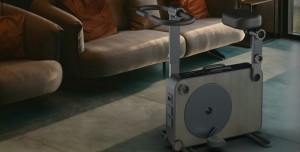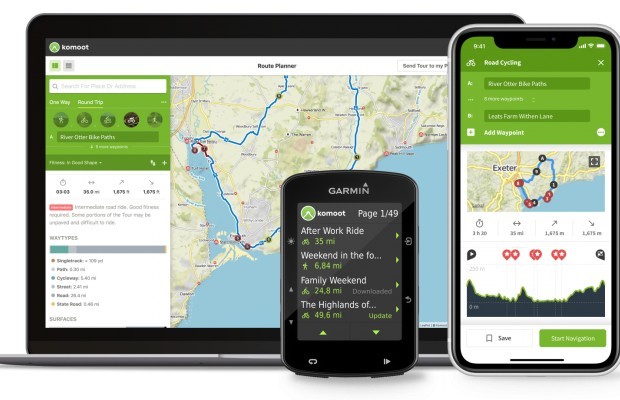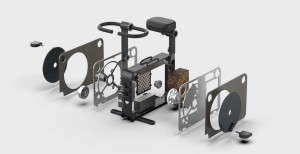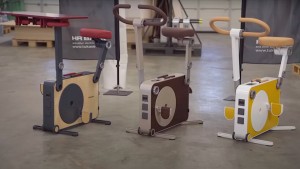This exercise bike stores the energy you generate and works as an external battery
Lithuanian company Tukas EV presents an innovative exercise bike set to revolutionise the industry. The HR Bank M2000 has a capacity of 2 kW, stores the energy generated during pedalling and can be connected to almost any output device. The model is highly customisable and is available from 2,964 euros.

Tukas EV HR Bank M2000: pedal to generate energy and use it for whatever you want
Indoor cycling is periodically revived at this point in the calendar. The increase in the number of people who prefer to cycle indoors is often due to the limited hours of sunlight or poor weather conditions. Indoor bikes offer, by definition, the convenience of pedalling from home, an incentive for those who want to exercise despite the typical limitations of these months of the year.
The TukasEV HR Bank M2000 is a new twist that could turn the exercise bike industry upside down. The model weighs 46kg, stores the energy generated by moving the cranks and offers the user the possibility of using it for whatever purpose they want, as almost any device can be connected to this mini 'power station' - as it has been dubbed.
RECOMENDADO

Alcoholic beverages with the fewest calories

What would you do if you won the lottery? This cyclist bought himself a €20,000 bike

Tips for cycling in the rain

25 cycling gifts ideas to get it right

When do helmets have to be changed? Do they have an expiration date?

The best apps for cycling and mountain biking
The battery capacity is 2 kW and the brand explains that the bike can generate between 50 and 300 W/h of electricity while pedalling, i.e. it would only take 15 minutes to fully charge a mobile phone or 1 hour to fill a laptop battery.
The possibilities of use increase, of course, depending on the energy we are able to generate. The 2 kW of maximum capacity is a considerable figure that would allow us to keep the fridge on for three days, run five washing machines, use the microwave 100 times or serve 150 cups of coffee.
In addition to charging the HR Bank M2000 by pedalling, the bike is capable of storing energy from other external sources, such as a solar panel, a wind generator or directly from the mains.
In terms of connectable devices, the bike has multiple outputs - USB-C 1x, USB-A 1x, AC 2x - as well as offering the ability to charge your phone wirelessly.

The HR Bank M2000 is all about sustainability. TukasEV CEO Jonas Navickas said that this model is not only meant to be healthy, "but also a step towards a more sustainable future". The bike uses recycled materials and the company claims that all components can be easily recycled.
Personalisation is another of its attributes. The Lithuanian firm offers three versions - Popular, Light and Luxury - ranging from 2,964 to 3,236 euros. However, a fourth option is also planned, which gives the user the freedom to choose the combination of colours, materials and finishes that he/she prefers.
Height and length become two highly adjustable parameters. There is also the possibility of removing the saddle to pedal from the chair or sofa, as well as attaching an accessory in the form of a desk to be able to work without stopping pedalling.

The display shows the current wattage, power consumption and current consumption, as well as calculates the time - depending on the current conditions - it will take to charge and fully deplete the battery. On the other hand, there is also a display showing power input and output over time.
The company has conceived the HR Bank M2000 as a solution for those who do not have access to the electricity grid, because they live in remote places or suffer the consequences of natural disasters or wars. It is also an idea to amortise the purchase of the bike itself by saving part of the household energy costs.
Finally, Tukas EV has also launched a 750 Wh model. This version weighs 36 kg and has a battery that - according to the brand - maintains its capacity above 80% after 1,000 full charge and discharge cycles. In this case, both the outputs and the charging possibilities are different from the 2 kW model.
You can find further information at Tukas EV website.